Last Modified: February 13th, 2024
4 min read

NetSuite’s importance in business operations cannot be overstated. As a cloud-based suite of enterprise resource planning (ERP) services, NetSuite facilitates a wide array of administrative tasks including accounting, inventory management, and customer relationship management.
Role of a NetSuite Administrator
A NetSuite Administrator plays a vital role in an organization, acting as a bridge between the technical team and the end users. They are responsible for managing the NetSuite system, ensuring that it runs smoothly and effectively to support business operations. This includes configuring and customizing the system to meet the organization’s specific needs, managing user access and security, troubleshooting system issues, and providing training and support to end users.
NetSuite Administrator Responsibilities
Managing User Access and Roles
An integral part of a NetSuite Administrator’s role is managing user access and roles. This involves setting up new users, assigning appropriate roles, and managing permissions to ensure that every individual has the necessary access to carry out their job functions, while maintaining security protocols.
When setting up a new user in NetSuite, Administrators need to define the user’s name, email address, role, and password. The “role” assigned to a user defines the permissions and access rights that the user will have in the NetSuite environment. NetSuite provides a wide range of predefined roles such as “Administrator”, “Sales Manager”, “Support Representative”, etc., each with its own set of access rights.
In addition to managing individual users, NetSuite Administrators can also manage roles on a more granular level. This includes creating custom roles, modifying existing roles, and setting up restrictions based on criteria such as subsidiary, location, department, class, etc. These capabilities empower Administrators to maintain a high level of control while ensuring that the system remains as flexible and adaptable as possible.
Configuring System Preferences
A critical aspect of a NetSuite Administrator’s role is the configuration of system preferences. These are the settings that control how the software behaves and presents information. This includes setting up the company’s financial year, defining company preferences such as the base currency, and customizing form layouts to suit the organization’s unique needs. It also involves managing email preferences, configuring tax settings, and defining data management rules. An adept NetSuite Administrator should be well-versed in navigating these system preferences to ensure that the software is tailored to optimally serve the organization’s requirements.
Maintaining Data Integrity
Another crucial responsibility of a NetSuite Administrator is maintaining data integrity. This involves ensuring data is accurate, consistent, and reliable throughout its entire lifecycle. Effective data integrity management includes establishing solid data entry rules, implementing error detection and correction processes, and conducting routine data audits. Regular backups should also be a part of the protocol to prevent data loss. By maintaining high data integrity, a NetSuite Administrator can provide reliable and trustworthy data for decision-making processes.
Best Practices for NetSuite Administration
Data Backup and Security Measures
Ensuring data safety is a paramount responsibility of a NetSuite Administrator. Regular data backup is essential to prevent irreversible loss of critical information. NetSuite provides SuiteCloud Plus licensing packages that offer comprehensive data backup solutions, enabling administrators to schedule automatic backups.
In addition, implementing robust security measures is a key role of the administrator. This involves setting up strong user authentication protocols, managing role-based access controls, and routinely auditing system activities for any potential threats. NetSuite’s built-in security features such as two-factor authentication (2FA), data encryption, and audit trail functionality support administrators in maintaining a secure environment.
Regular System Audits
Regular auditing helps ensure that all system processes are functioning correctly, provides insights into user activities, and aids in the detection of any potential security risks or breaches. NetSuite’s in-built audit trail functionality allows administrators to track changes made to records, providing a comprehensive overview of who did what and when. This proactive approach helps in identifying inaccuracies, ensuring compliance with standard procedures, and maintaining the overall health and security of your NetSuite environment.
Staying Updated with NetSuite Updates and Features
NetSuite rolls out two major updates annually, offering enhancements and new functionalities that can significantly improve business processes. Administrators should actively participate in NetSuite’s New Release Training and Preview programs to familiarize themselves with the latest features and understand how they can be integrated into their current processes. Besides, subscribing to NetSuite’s blog posts, webinars, and newsletters is a beneficial practice to keep up-to-date with any minor updates, tips, or best practices. It’s important to note that knowing when and how to apply these updates requires a deep understanding of the company’s internal operations. Therefore, administrators should also communicate regularly with their teams to assess the relevance and potential impact of these updates on their specific workflows.
The Path Forward for NetSuite Administrators
The path forward for NetSuite administrators involves continuous learning and adaptation. As technology advances, new features and functionalities are constantly added to the NetSuite platform. In order to leverage these enhancements, administrators need to stay updated with the latest NetSuite developments and training. Participating in NetSuite’s ongoing educational programs and webinars, and staying connected with the NetSuite community through forums and blogs, can be extremely beneficial in this regard.
Continuous Learning
The field of enterprise resource planning is dynamic, with new features, techniques, and best practices emerging regularly. Administrators should commit to updating their knowledge and skills, keeping abreast with the latest trends and advancements in the NetSuite platform. NetSuite offers a plethora of resources for learning and development, such as webinars, certification programs, and user forums. Administrators can also consider joining NetSuite user groups or participating in NetSuite events and conferences to learn from other professionals in the field.
Start the NetSuite Administrator Fundamentals Course to learn more.
Serge is a Managing Partner and the head of sales and business development.
Published on: December 6, 2023
